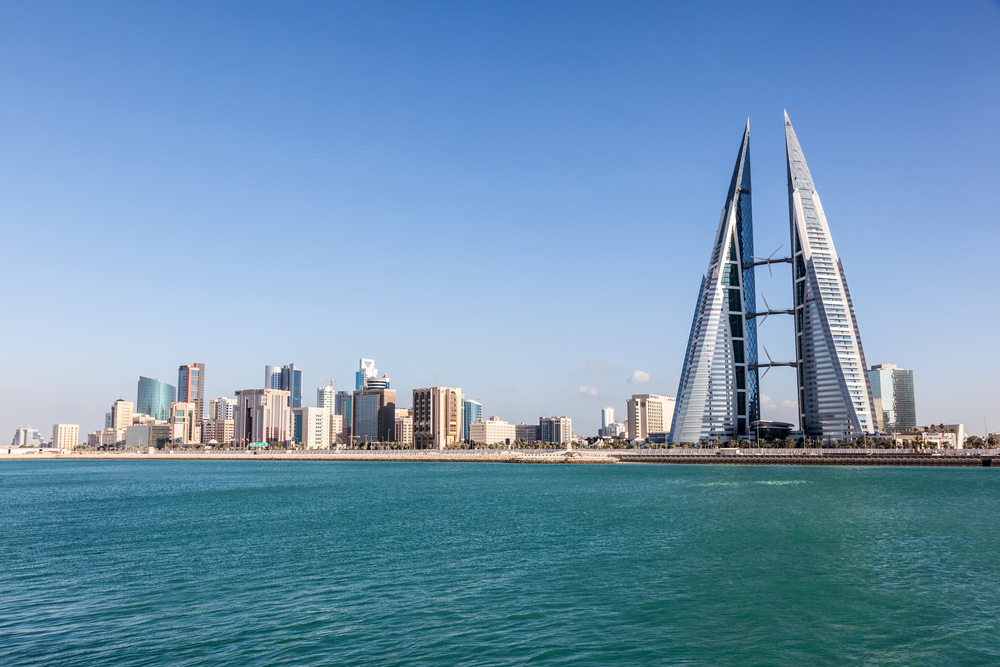Kingdom of Bahrain Targets “Country Level” Blockchain Adoption

The Kingdom of Bahrain, a nation of over 30 islands in the Persian Gulf, is in talks with Singapore’s central bank as the monarchy looks toward nation-wide blockchain adoption.
According to a report in a regional publication, Bahrain is devising a plan to deploy a pilot blockchain project while seeking the expertise of the Monetary Authority of Singapore (MAS), the Asian country’s central bank.
In November 2016, the MAS had notably announced the development of a blockchain proof-of-concept (PoC) that will facilitate inter-bank payments and settlements on a global stage. The pilot will see partner banks deposit fiat cash at the central bank, swapping it for MAS-issued digital currency. This digital token can then be used in a global payment system that enables instant transfer of funds between participants on the distributed ledger. Cross-border payments, trading and settlements and automated issuance of securities through smart contracts are some of the applications that will see focus during the trial.
Developed in partnership with R3, the New York-based startup leading the prominent global namesake banking blockchain consortium, the central bank has, thus far, partnered eight local and international banks alongside Singapore’s stock exchange for the PoC effort.
The project has caught the attention of Bahrain’s Economic Development Board (EDB), a government agency tasked to plan and implement the country’s economic development strategy.
Bahrain’s Blockchain Adoption
Bahrain is making moves toward the national adoption of blockchain technology in order to become a pioneer in the Fintech space, according to Khalid Al Rumaihi, CEO of the Bahrain EDB. The official revealed the following at the Gulf Cooperation Council (GCC) today.
“We are in talks with a group of people from the central bank of Singapore,” stated Al Rumaihi.
Notably, he added:
The ability for blockchain to be adopted at [a] country level is a huge opportunity for Bahrain to move into the spotlight as a pioneer in this space.
Tasked with developing the blueprint for economic growth and development, Al Rumaihi sees the entirety of the financial services sector in the midst of “disruption of fintech”, underlining the need for Bahrain to proactively adapt and leap ahead with technologies like blockchain.
Drawing parallels to other transformative innovations, he further stated:
Blockchain will unlock so many different possibilities for business in the way email and internet did years ago. What would prevent Bahrain from becoming a leader in this space in the same way Singapore is?
Aside from the potential of an interbank blockchain that facilitates instant settlements, the official also sees blockchain applications in real estate including sales and exchange of title deeds.
Further, the official revealed that the government was working toward establishing a ‘regulatory sandbox’. The regulator-friendly space that complies with Bahrain laws will enable research and testing of new Fintech products and innovations specific to the region’s requirements. A similar sandbox is already in place in Singapore, installed by the MAS.

Also in attendance as a speaker at the conference, Central Bank of Bahrain governor Rasheed Mohammed Al Maraj revealed the completion of a Fintech whitepaper. With a focus on planning the growth of the Fintech sector in the country, the whitepaper will be made available to partners soon, according to the official.
Bahrain is also set to host the first edition of the Middle East & North Africa (MENA) Fintech conference in March this year.
The Middle East is Big on Blockchain
Besides Bahrain, a number of other nations in the region including notable Emirate states have implemented significant Fintech initiatives.
Most notable of all is the Dubai government’s move to record all of its documents on a blockchain by the year 2020, as a part of its “Dubai Blockchain Strategy.” Dubai also announced a partnership with technology giant IBM this year to launch a blockchain trade finance project.
Such is the interest in blockchain technology that its most celebrated innovation, bitcoin, evaded a prohibitive ban by the central bank of the United Arab Emirates. Other blockchain-based applications in Dubai include developments in healthcare, cross-border remittance, conflict-free diamond trading and e-voting, among others.
Images from Shutterstock.